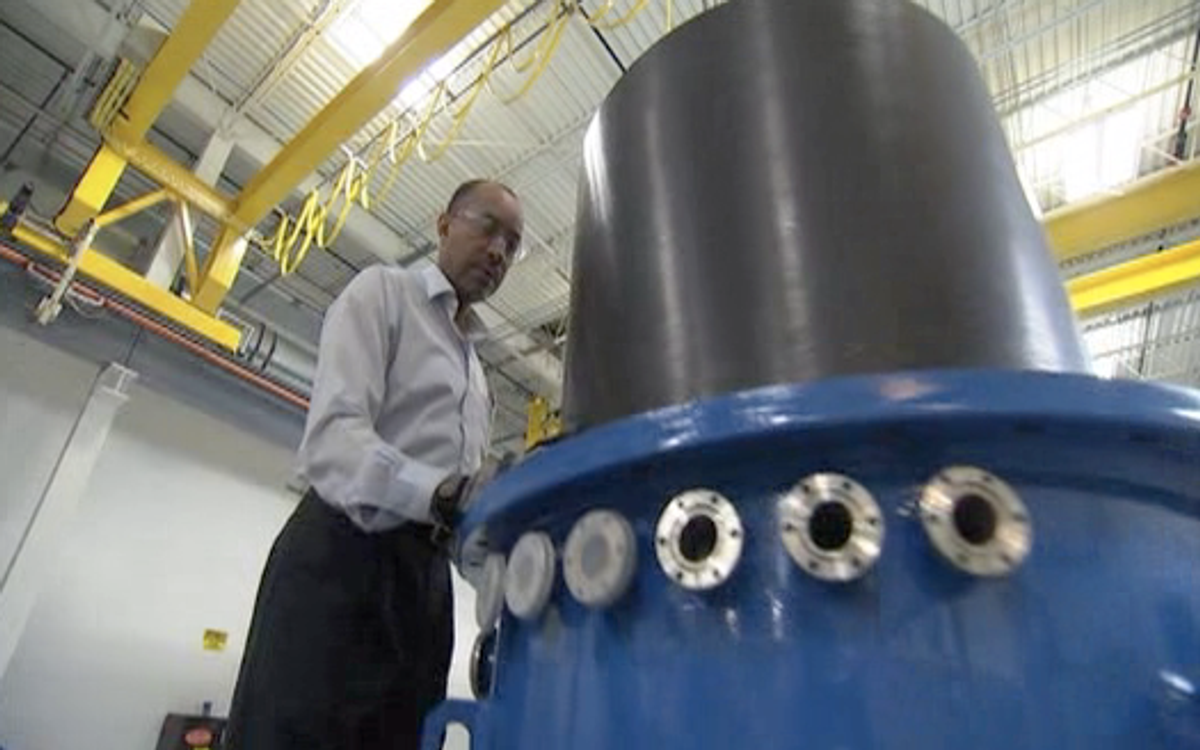Flywheel energy storage developer Beacon Power filed for bankruptcy last weekend, prompting immediate comparisons to infamously failed solar manufacturer Solyndra. But while both firms used millions of dollars in federal loan guarantees to expand their businesses, Beacon Power -- which Spectrumprofiled this summer -- has working assets and a good shot at restructuring and carrying on.
No doubt Beacon Power has its work cut out for it. In a statement issued yesterday, Beacon Power CEO Bill Capp says the firm is suddenly unable to cover its obligations because of "severely restricted access to additional investments through the equity markets," which Capp blamed on several factors including the "current uncertain economic and political climate" and the automatic delisting of its low-priced stock from NASDAQ last month.
But Capp calls the comparison to Solyndra unfounded. For one thing, he notes that Beacon's 20-megawatt power grid regulation facility in Stephentown, NY continues operating at full capacity and generating revenue -- it's 200 flywheels continuously accelerating and decelerating to balance electrical supply and demand and thus keep New York state's grid tuned to 60 hertz. In contrast Solyndra's bankruptcy shut its doors immediately. Beacon's employees accepted a 20 percent pay cut to remain on the job, adds Capp, whereas Solyndra immediately shed more than a thousand workers.
Observers appear to be sympathetic to Capp's arguments. CNET greentech writer Martin LaMonica notes in his coverage of the Beacon filing that market conditions are improving for Beacon and other innovative firms that have improved the provision of grid regulation:
"Earlier this month, the Federal Regulatory Energy Commission (FERC) changed the regulations in a way that would significantly benefit Beacon Power financially because its technology can ramp up power very rapidly compared to gas plants. Instead of being compensated only for power, storage providers will also get value for the speed with which power is provided."
LaMonica cites reporting by Bloomberg in mid-October which identified FERC's ruling as a potential "lifeline" for Beacon.
Whether Beacon Power makes it or not, one thing seems certain: this scrappy firm has proven that energy storage is a far smarter way to keep power grids in tune than ramping giant fossil-fueled power plants up and down.
Peter Fairley has been tracking energy technologies and their environmental implications globally for over two decades, charting engineering and policy innovations that could slash dependence on fossil fuels and the political forces fighting them. He has been a Contributing Editor with IEEE Spectrum since 2003.



